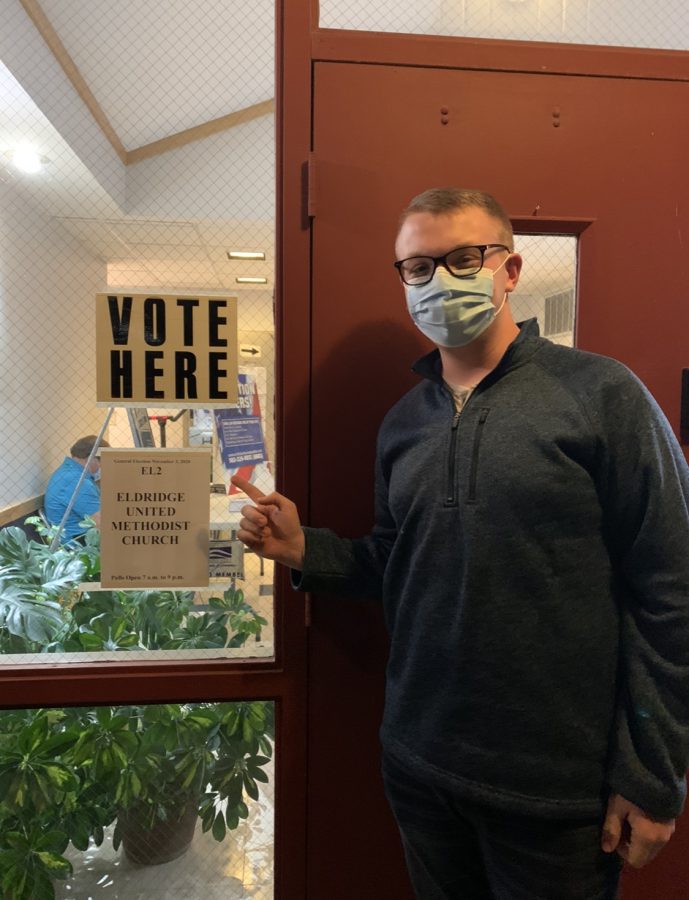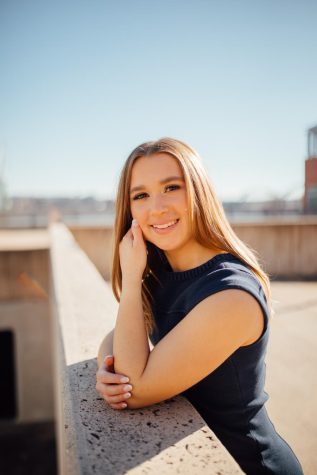Since 1972, the Iowa caucuses have marked the start of a busy schedule of presidential primaries. However, the Democratic National Committee’s Rules and Bylaws Committee voted to approve President Joe Biden’s suggestion to change the early voting window.
While the suggestions still have to be approved by the full Democratic National Committee (DNC), Iowa is poised to not only lose its spot as the first primary, but also to be kicked out of the early voting window entirely. South Carolina will be first, with Nevada, New Hampshire, Georgia and Michigan filling out the first five spots. Iowans are not pleased with the proposal, as it would greatly reduce the amount of time presidential candidates spend interacting with the people of the state.
The Iowa primary process is not a private voting primary, but rather, a caucus, a more involved event. Voters meet at hundreds of precinct caucuses across the state for a night of debate and discussion. Speeches are made on a candidate’s behalf as caucus voters try to sway the opinions of others. For Republican caucuses, the final vote is private; however, for Democratic caucuses, the final vote is taken via a headcount as voters physically move to certain areas of the room to show their support.
Caucuses have been criticized for years for making voting unnecessarily difficult and practically restricting voting in the primaries to a small group of citizens. The Democratic caucus’s lack of privacy also creates a special issue, as people may feel uncomfortable publicly sharing their opinion amidst family and neighbors.
Additionally, Iowa is 84.1% non-Hispanic, which stands in contrast to the 59.3% non-Hispanic white population of the US as a whole. This demographic, among others, caused the DNC to search for a state that better functions as a microcosm of the US and better reflects party values.
The 2020 Iowa Democratic Caucus disaster brought these complaints to a new level of attention. Even though changes were made to increase transparency and combat accusations of undemocratic voting procedures, these changes just made finalizing the results even more complicated. Any benefit to the change in structure was heavily overshadowed by the utter failure of the Democratic party to report Iowa’s results when expected.
Senior Ben Alkafaji is a registered Democrat with a strong interest in politics. He supports the change in large part due to the 2020 caucus blunder. “Iowa really messed up the democratic caucus they held for the 2020 general election and it resulted in the allocation of disputable delegates,” he said. “I think that before Iowa can be #1, the election officials have to upgrade whatever equipment necessary to count votes correctly and effectively.”
South Carolina holds private voting primaries rather than caucuses, eliminating many of the chief complaints against Iowa’s system. However, there is still debate among Democrats over if a better first state exists, although finding a state that is a perfect microcosm of the US is impossible. Some find South Carolina to be too conservative, while others have concerns about the balance of urban and rural voters.
Among the states discussed as better replacements are Georgia, North Carolina and Nevada. Iowa, however, appears to have been decisively stripped of its former status, with little opposition to the change coming from anyone outside of the state.
Alkafaji believes that Iowa should hold its caucus around Super Tuesday while California should take over the first caucus slot. “They not only have the largest democratic population of any state, but also the largest state population,” he said. “This would give Democrats a better understanding of where the party lies on the different candidates.”
While Democrats finalize their primary order in the coming weeks, Republicans have already announced that they will keep Iowa as the first state in their primary schedule. This decision further cements the feelings of loyalty toward the Republican party felt by many Americans in rural Midwestern areas. The Democratic party is already known to struggle in rural America, and the active decision to further move rural Americans out of places of importance only worsens this struggle. As Senator Joni Ernst put it, the move was “a middle finger” to the Midwest.
Dylan Englebrecht is a sophomore at Drake University. As the chair of the Drake College Republicans, he works closely with Drake Democrats and has concerns about the implications the DNC’s decision has on the voice of rural America. “One may argue that South Carolina, Georgia, Nevada, and Michigan do have significant rural votes,” he said. “Although this is true, the DNC needs to keep in mind where the Democrat votes lie in those states — not just the votes as a whole (regardless of party).”
In many of the proposed states, the majority of Democratic voters are concentrated in urban areas, which is not the case in Iowa. When the Democratic voters are concentrated in a few urban areas, candidates focus less on the issues of rural voters.
Englebrecht points out that this is not the case in Iowa. “In order to win the Hawkeye State, a Democratic candidate can not only win Des Moines, but also make huge strides in medium sized cities like Cedar Rapids, Iowa City, and Davenport, and then more small cities like Ames, Grinnell, Decorah, Clinton, etc. Above all, they must make in-roads with the Democratic voters in rural, typically more conservative counties.”
For Iowa Democrats, the 2024 presidential election will mark the most significant change in caucus history in 52 years. While the news of this change has already been criticized by many, the true impact of Iowa’s diminished importance on the presidential campaign trail remains to be seen.










